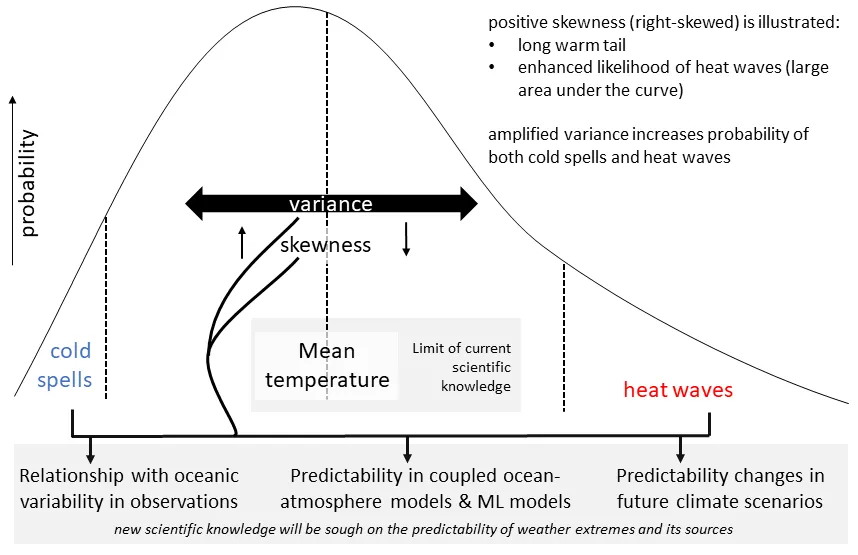A01-K104 Seasonal prediction of heat extremes affecting Japan in a changing climate: predictability and mechanisms
A01-K104
Principal Investigator
| MARTINEAU Patrick | JAMSTEC |
Research Collaborators
| DOI Takeshi | JAMSTEC |
| PATIL Kalpesh | JAMSTEC |
This project aims to enhance the seasonal prediction of heat extremes (heatwaves and cold spells) in Japan, which pose significant socioeconomic risks. Despite their impact, the predictability of these events remains uncertain, as most seasonal prediction studies have focused on seasonal or monthly mean temperatures. To address this gap, this project will assess the predictability of higher-order moments, such as variance and skewness, which are essential for understanding the likelihood of extreme events. Additionally, it will evaluate how their predictability may change under global warming conditions.
The key objectives of this project are to:
- Identify the processes that shape the probability distribution of temperatures in Japan.
- Determine the sources of seasonal predictability for fundamental moments of the distribution (mean, variance, and skewness) using historical data, with a focus on air-sea interactions and teleconnections.
- Assess the predictability of these moments using both dynamical and machine-learning models.
- Evaluate how predictability changes under global warming scenarios using climate models.

